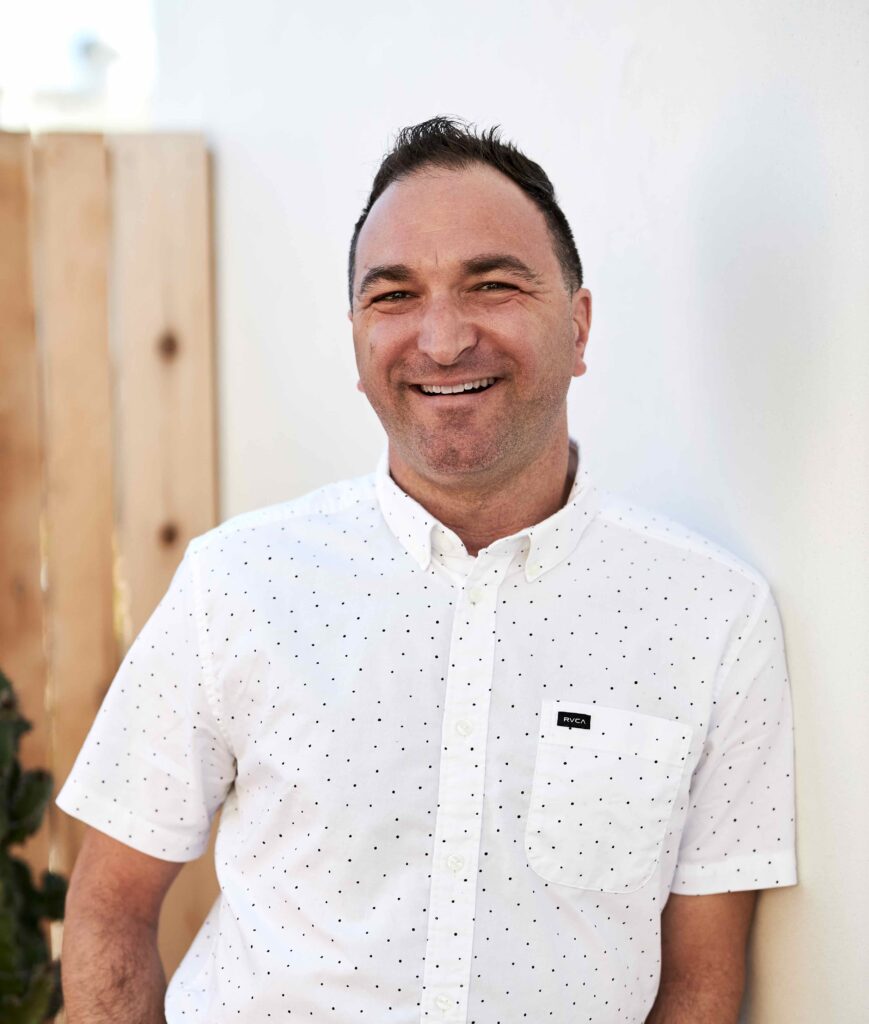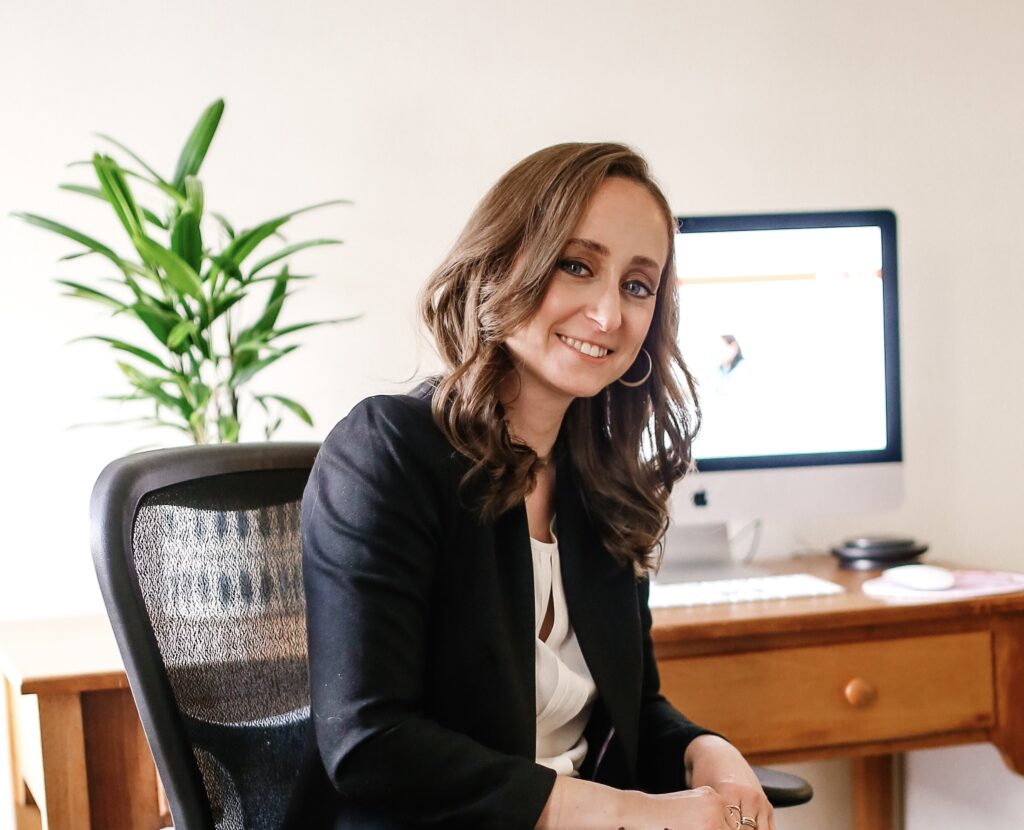What is it like to identify as a spoonie? How do you adjust your identity in relation to living with chronic illness? What do you have to do every day that your healthy friends don’t have to?
In this podcast episode, Dr. Kate Herts speaks about unraveling the illness experience with Joe Sanok.
Meet Joe Sanok

Joe Sanok helps counselors to create thriving practices that are the envy of other counselors. He has helped counselors grow their businesses by 50-500% and is proud of all the private practice owners who are growing their income, influence, and impact on the world.
Click here to explore consulting with Joe. Connect on LinkedIn.
In this Podcast:
- Joe’s illness experience
- Identifying with being a spoonie
- Joe’s book
- Joe’s final comments for listeners
Joe’s illness experience
Joe has come to identify as a spoonie over time due to multiple and challenging illnesses, ranging from internal illness to physical injuries, that have led Joe to adjust how he uses his time and energy.
When Joe was 19 and a freshman in college, he had a bad snowboarding fall where he herniated three discs and another bad spinal injury.
I was walking with a cane for most of my sophomore year of college and then the last couple weeks before I was in a wheelchair. I went to the ER a bunch for the pain … [My doctor said], “Your back’s always going to be 10 years ahead of yourself” … So I’ve really had to learn a lot about back issues and what makes me feel good.
Joe Sanok
This was the starting point of Joe’s medical history. At this point, he didn’t identify with having a chronic illness, but it was still a medical aspect of his life that he had to take care of every day.
When he was 32, he suddenly lost a huge amount of weight without knowing why and going to the doctor he was diagnosed with late-onset type 1 diabetes.
A few years later, Joe was diagnosed with thyroid cancer and went through surgery and treatment, and a few years ago today, Joe had a bad case of salmonella poisoning which he is still recovering from.
Maybe part of my acceptance which you’ve helped me see is that … [Spoonie’s] are ahead of what the average adult has to deal with health-wise.
Joe Sanok
Identifying with being a spoonie
One of the questions that Dr. Herts asks her new patients is what they have to do every day that their healthy friends don’t have to. Your well-being must be in a community with people who understand what it is that you are going through.
[Living with chronic illness] is a unique experience … and I think it is so important … because we need to find each other and support each other and give each other more energy, encouragement, and permission to take care of ourselves, and permission to thrive.
Dr. Herts
Identity may be part of being one of a group of like-minded people who have shared similar experiences because as much as people want to be unique, we also want to feel that we are amongst friends who understand us and have walked a similar path.
Joe’s book
Whether it was something that Joe inadvertently learned on his health journey or just a part of who he is, he never wanted to put his energy into something unless he had to, or wanted to.
For me, all the way through college, I did the four-day work week instead of one semester … And then my first job out of grad school as a newly hired therapist, I negotiated a four-day work week there [too].
Joe Sanok
Joe had always strived to work a four-day workweek because he found that it suited his lifestyle better, and knew that he got to enjoy many benefits.
When Joe started writing his book, he began digging into the history of time and the modern work week, and how the standard week being seven days long is a concept that has been completely made up – and you don’t have to live your life that way.
There’s all these examples now [about the four-day work week] that are so exciting to me because it’s more in line with what you and I already know from our chronic illnesses … That we aren’t this product … We have nuance, and things that we can do which go beyond the products that we create.
Joe Sanok
Joe’s final comments for listeners
Joe loves the idea from Daoist philosophy that we’re in a river, and we can either flow with the river or go against it.
Either way, find the philosophies that work for you and that help you to be more grounded and present with life.
RESOURCES MENTIONED AND USEFUL LINKS
BOOK | Joe Sanok – Thursday is the New Friday: How to Work Fewer Hours, Make More Money, and Spend Time Doing What You Want
Click here to explore consulting with Joe.
Text SPOONIE to 833-324-2041 to join our membership community and get exclusive content including a free media guide to the chronic illness experience.
Visit The Health Psychology Center of New York. Connect with them on Facebook, Instagram, and LinkedIn.
Practice of the Practice Network
Rate, review, and subscribe to this podcast on Apple Podcasts and Spotify!
CONNECT WITH ME:
Email me at: kateherts@healthpsychny.com
ABOUT DR. KATE HERTS:

Dr. Kate Herts completed her Bachelor’s of Arts at Brown University, her Master’s degree in Public Health at Harvard University, and her PhD in Clinical Psychology at UCLA. She is a licensed clinical psychologist and the Founder and CEO of The Health Psychology Center of New York, a group practice of expert psychologists providing evidence-based therapies tailored to meet the specific and urgent needs of teens and young adults with chronic medical conditions. Dr. Herts’ vision is to ultimately create a global wellness community for mental health practitioners, patients and family members dedicated to creating a better world for all people with chronic illness.
On this podcast, Dr. Herts gets personal about her experiences growing up as a lesbian millennial woman with a serious chronic illness; what she has learned from her patients and colleagues as a health psychologist; how she has built a meaningful life through it all; and how you can do it, too.

